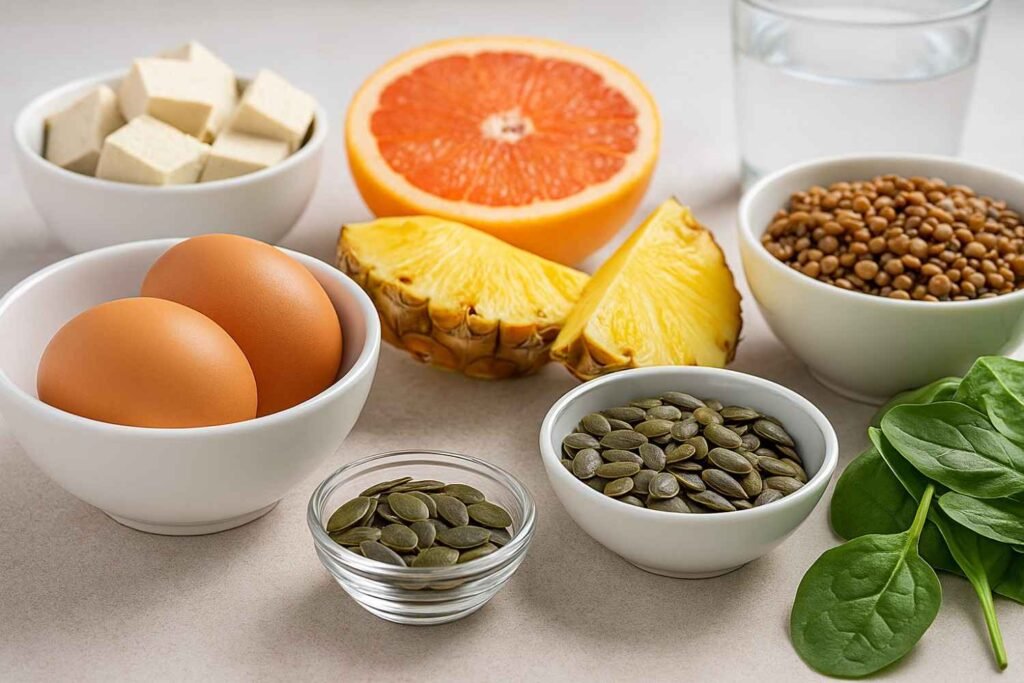Embryo transfer is one of the most delicate and hopeful moments during your IVF journey. To support a successful implantation and increase the chances of pregnancy, your diet matters — not just what you eat, but also what you avoid.
At Nex IVF and Fertility Centre, we guide every couple with trusted medical advice, including how lifestyle and food choices can impact embryo implantation.
In this blog, we’ll explore which foods to avoid after embryo transfer and why they matter for your fertility success.

Why Diet Matters After Embryo Transfer
After embryo transfer, your uterus is in a receptive state, and the embryo needs a stable environment to implant and grow. Your body’s internal balance, including hormonal levels, inflammation, and blood flow, can be influenced by your diet.
That’s why it’s crucial to avoid foods that may cause inflammation, uterine contractions, hormonal imbalance, or digestive stress.
Top Foods to Avoid After Embryo Transfer
1. Papaya and Pineapple (Especially Raw)
These fruits contain enzymes like papain and bromelain that can stimulate uterine contractions. While cooked pineapple is generally safe, it’s best to avoid raw forms completely during this period.
2. Processed and Packaged Foods
Chips, instant noodles, and ready-to-eat meals are often high in sodium, trans fats, and preservatives, which may increase inflammation and impact hormone regulation.
3. Caffeinated Beverages
Limit tea, coffee, and energy drinks. Excess caffeine can restrict blood flow to the uterus and impact sleep quality — both important for embryo support.
4. Sugary Foods and Sweets
High sugar intake can spike insulin levels and affect hormonal balance. This may interfere with progesterone, which is crucial for implantation.
5. Red Meat and Processed Meats
These can cause digestive discomfort and are linked to inflammation. Opt for lean protein like lentils, tofu, or grilled chicken instead.
6. Raw or Undercooked Foods
Avoid sushi, rare meats, unpasteurized cheese, and soft-boiled eggs. They may carry harmful bacteria or parasites that can harm the embryo.
7. Excess Spices and Pickles
Too much spice or sour items can lead to bloating or gastric issues, causing discomfort during this sensitive period.
8. Alcohol
Strictly avoid alcohol, as it can directly affect embryo development and hormone balance.
What to Eat Instead?
Focus on a fertility-friendly diet that includes:
- Whole grains
- Healthy fats (avocado, nuts, seeds)
- Fresh fruits (except papaya/pineapple)
- Cooked vegetables
- Protein-rich food (paneer, lentils, lean meat)
- Hydrating fluids (coconut water, soups, water)
At Nex IVF and Fertility Centre, our nutrition experts create customized diet charts tailored to your body and treatment stage.
Tips to Support Embryo Implantation
- Rest well: Avoid strenuous activity, but light walking is fine.
- Stay hydrated: Water helps maintain blood flow.
- Avoid stress: Practice mindfulness or deep breathing.
- Stick to your meds: Follow the progesterone and other medications as advised.
Why Choose Nex IVF and Fertility Centre?
We understand that every small step counts. From embryo transfer to your daily meal choices, our expert team supports your IVF journey with:
✔️ Personalized dietary guidance
✔️ Emotional counseling and care
✔️ Experienced fertility specialists
✔️ State-of-the-art IVF lab facilities
Whether it’s your first IVF cycle or a repeated attempt, we walk every step with you — from embryo to embrace.
Final Thoughts
What you eat after embryo transfer can either support or disrupt implantation. Avoiding the wrong foods gives your body the best chance to welcome and nurture the embryo.